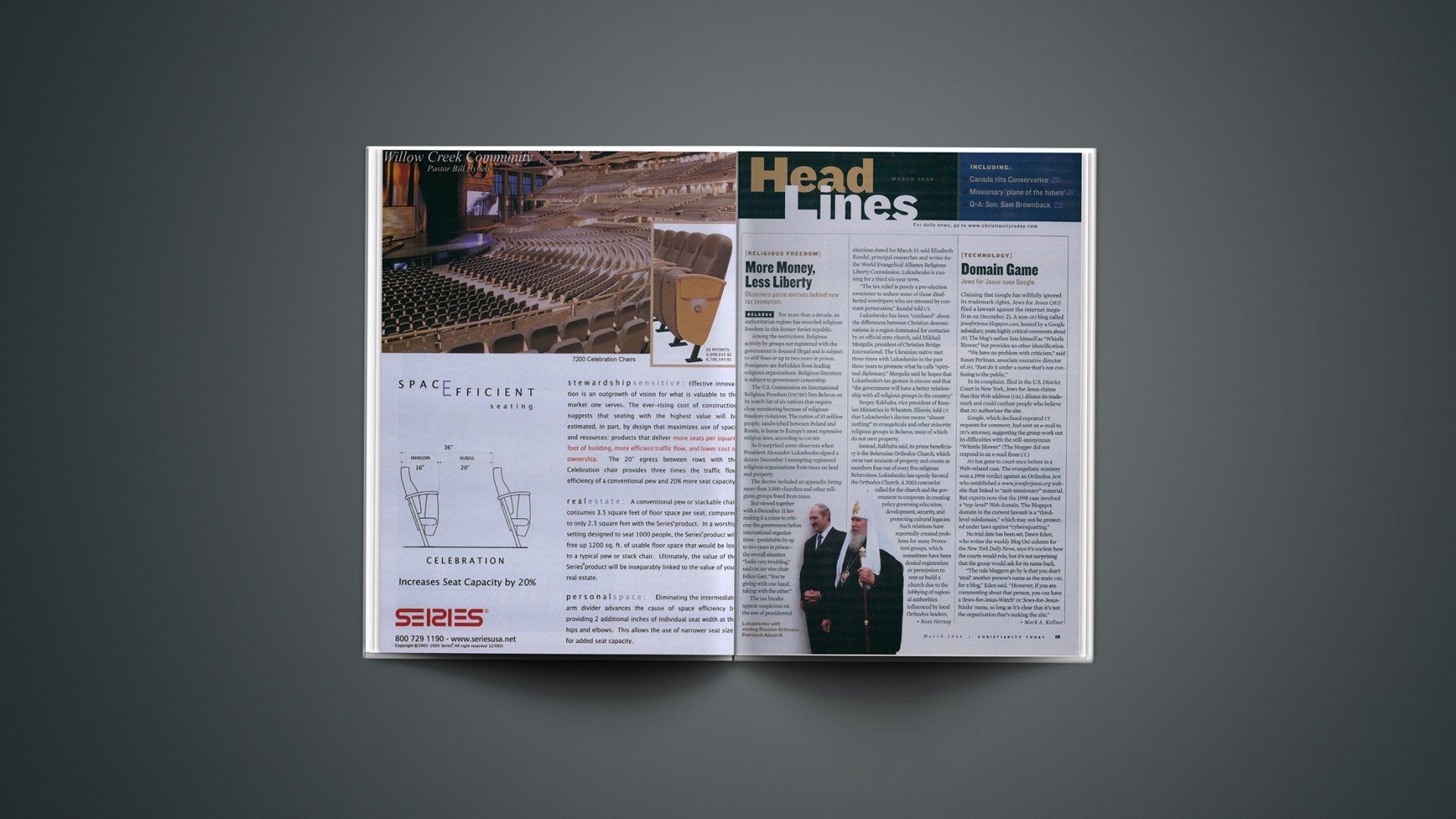For more than a decade, an authoritarian regime has muzzled religious freedom in this former Soviet republic.
Among the restrictions: Religious activity by groups not registered with the government is deemed illegal and is subject to stiff fines or up to two years in prison. Foreigners are forbidden from leading religious organizations. Religious literature is subject to government censorship.
The U.S. Commission on International Religious Freedom (USCIRF) lists Belarus on its watch list of six nations that require close monitoring because of religious-freedom violations. The nation of 10 million people, sandwiched between Poland and Russia, is home to Europe’s most repressive religion laws, according to USCIRF.
So it surprised some observers when President Alexander Lukashenko signed a decree December 1 exempting registered religious organizations from taxes on land and property.
The decree included an appendix listing more than 3,000 churches and other religious groups freed from taxes.
But viewed together with a December 31 law making it a crime to criticize the government before international organizations—punishable by up to two years in prison—the overall situation “looks very troubling,” said USCIRF vice chair Felice Gaer. “You’re giving with one hand, taking with the other.”
The tax breaks appear suspicious on the eve of presidential elections slated for March 19, said Elizabeth Kendal, principal researcher and writer for the World Evangelical Alliance Religious Liberty Commission. Lukashenko is running for a third six-year term.
“The tax relief is purely a pre-election sweetener to seduce some of those disaffected worshipers who are stressed by constant persecution,” Kendal told ct.
Lukashenko has been “confused” about the differences between Christian denominations in a region dominated for centuries by an official state church, said Mikhail Morgulis, president of Christian Bridge International. The Ukrainian native met three times with Lukashenko in the past three years to promote what he calls “spiritual diplomacy.” Morgulis said he hopes that Lukashenko’s tax gesture is sincere and that “the government will have a better relationship with all religious groups in the country.”
Sergey Rakhuba, vice president of Russian Ministries in Wheaton, Illinois, told ct that Lukashenko’s decree means “almost nothing” to evangelicals and other minority religious groups in Belarus, most of which do not own property.
Instead, Rakhuba said, its prime beneficiary is the Belarusian Orthodox Church, which owns vast amounts of property and counts as members four out of every five religious Belarusians. Lukashenko has openly favored the Orthodox Church. A 2003 concordat called for the church and the government to cooperate in creating policy governing education, development, security, and protecting cultural legacies.
Such relations have reportedly created problems for many Protestant groups, which sometimes have been denied registration or permission to rent or build a church due to the lobbying of regional authorities influenced by local Orthodox leaders.
Copyright © 2006 Christianity Today. Click for reprint information.
Related Elsewhere:
Oslo-based Forum18 has dozens of articles about religious freedom issues in Belarus.
USCIRF reports on Belarus are available from their website. The commission’s 2005 Annual Report also includes information on Belarus.
More Christianity Today coverage of Belarus includes:
Faith Restricted in Belarus | New law makes it harder than ever to be non-Orthodox. (Oct. 28, 2002)
Pastor Charged with Speaking for Unregistered Organization | Case dismissed on technicality for pastor from Minsk, but courts are still deciding the fate of the Association for Religious Freedom in Belarus. (Jan. 22, 2001)










